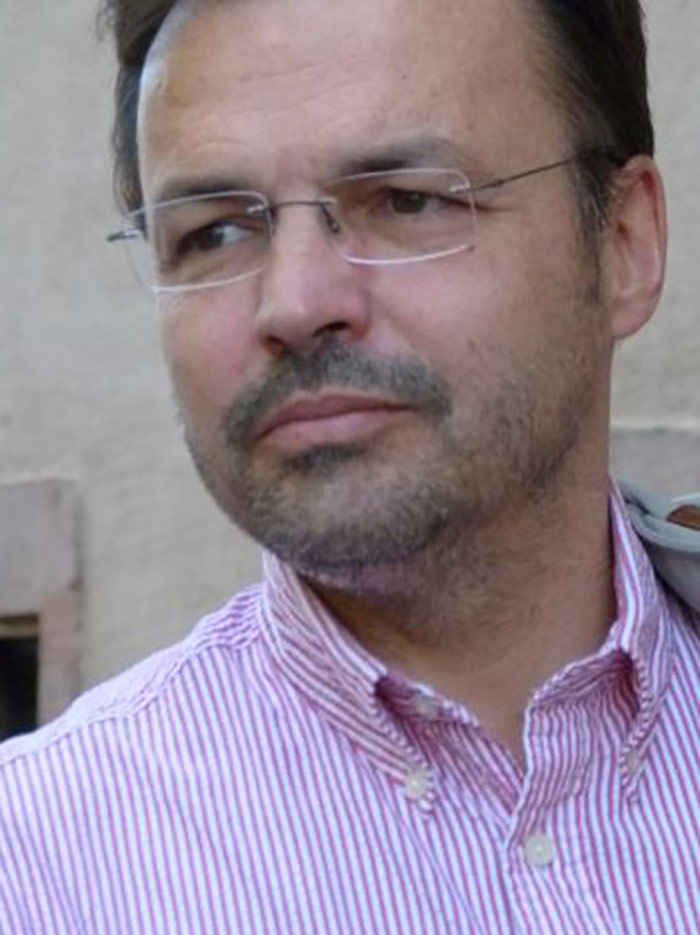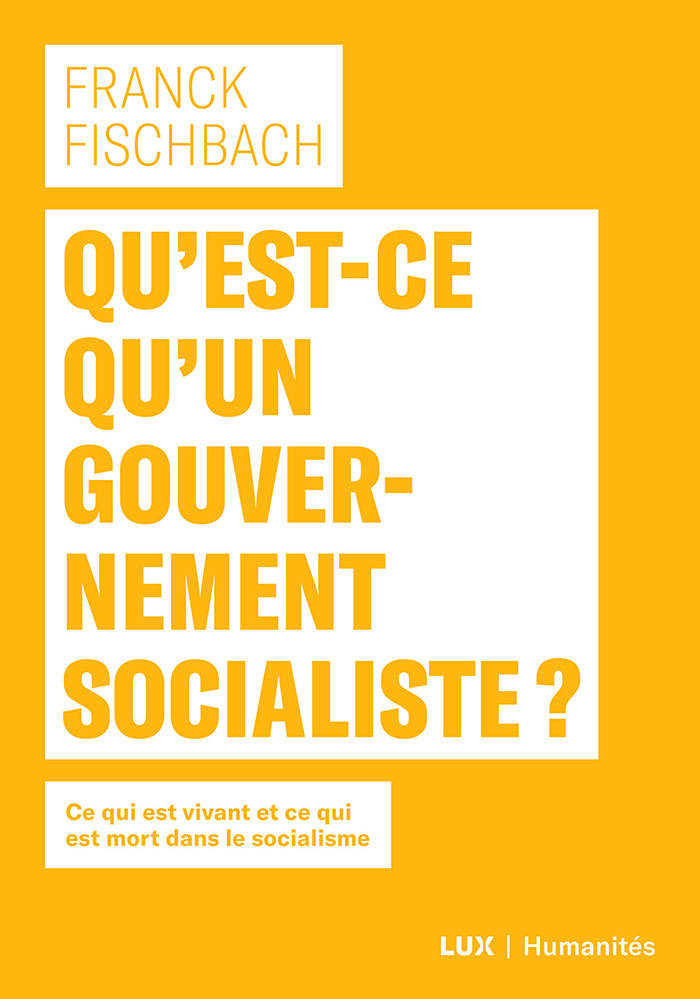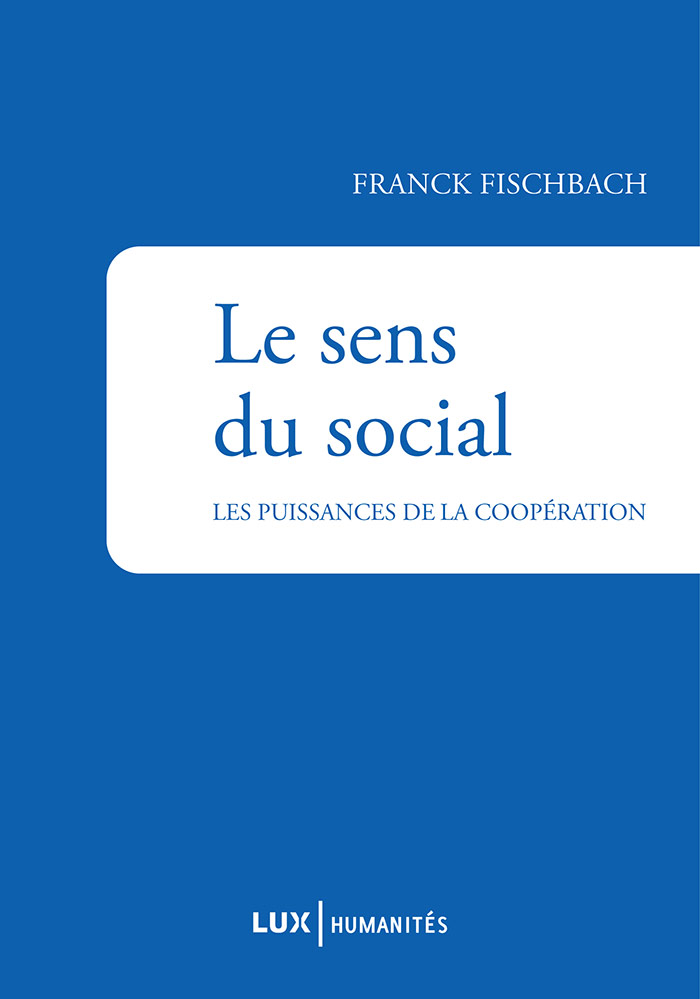Sous-total: $

FRANCK FISCHBACH
Franck Fischbach teaches Philosophy at the Université de Strasbourg. He has translated Hegel, Schelling, Marx and Honneth into French, and written various essays on Marx, Social Philosophy, among other topics.

QU’EST-CE QU’UN GOUVERNEMENT SOCIALISTE?
Ce qui est vivant et ce qui est mort dans le socialisme
258 pages
Released: 23 March 2017
While the «left» seems to have officially parted ways with socialism, has become an avatar of liberalism and has finally and completely disconnected itself from the working class, the neoliberal-populist bloc hegemony seems impregnable. Relaunching a socialist program on the left of this neoliberal « left » is the only way to undo it, tells us Franck Fischbach. But before, one must hark back to the founding socialist hypotheses. Returning to the philosophical propositions that underlie socialist thought, notably those of Hegel, Marx, Durkheim and Dewey, Franck Fischbach sketches a socialist theory that is conscious of social rationality, a socialism of cooperation between equals that goes far beyond the Social state or «real» socialism. The socialist parties are dead, long live socialism !
Rights Sold: Slovenia (Založba Krtina)

LE SENS DU SOCIAL
Les puissances de la coopération
264 pages
Released: 12 November 2015
For several decades now society has become increasingly privatized and atomized, positioning people in competition with one another and causing them to lose touch with the true meaning of the social: cooperation. In philosophy too, the concept of the social, often preferred over conceptions such as ‘the commons’ or ‘community’, struggles to find a place. In the tradition of Dewey, this essay defends “the value of the social” as a category of thought. It analyzes the reasons behind the discrediting of ‘the social’, and seeks to rebuild the concept as serving both a descriptive and moral-political function. This book advances the argument that work, as a venue for connection and cooperation, is a strictly democratic imperative and the political expression of the social system. On this basis becomes possible a critique of those devices that effectively deprive work of its democratic dimension by subduing its cooperative logic.
Rights Sold: .
 Mon compte
Mon compte 


